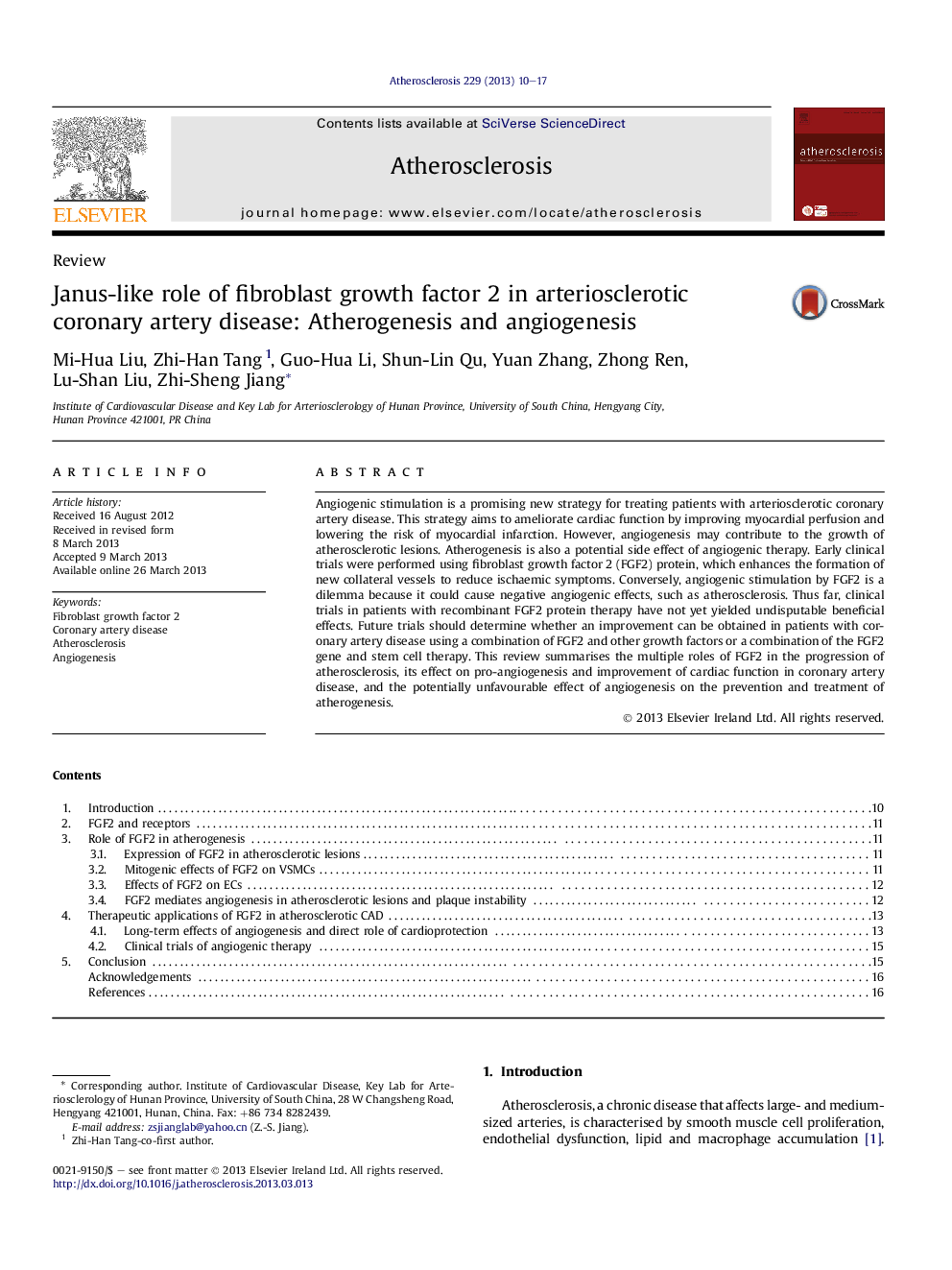| کد مقاله | کد نشریه | سال انتشار | مقاله انگلیسی | نسخه تمام متن |
|---|---|---|---|---|
| 5947813 | 1172374 | 2013 | 8 صفحه PDF | دانلود رایگان |
Angiogenic stimulation is a promising new strategy for treating patients with arteriosclerotic coronary artery disease. This strategy aims to ameliorate cardiac function by improving myocardial perfusion and lowering the risk of myocardial infarction. However, angiogenesis may contribute to the growth of atherosclerotic lesions. Atherogenesis is also a potential side effect of angiogenic therapy. Early clinical trials were performed using fibroblast growth factor 2 (FGF2) protein, which enhances the formation of new collateral vessels to reduce ischaemic symptoms. Conversely, angiogenic stimulation by FGF2 is a dilemma because it could cause negative angiogenic effects, such as atherosclerosis. Thus far, clinical trials in patients with recombinant FGF2 protein therapy have not yet yielded undisputable beneficial effects. Future trials should determine whether an improvement can be obtained in patients with coronary artery disease using a combination of FGF2 and other growth factors or a combination of the FGF2 gene and stem cell therapy. This review summarises the multiple roles of FGF2 in the progression of atherosclerosis, its effect on pro-angiogenesis and improvement of cardiac function in coronary artery disease, and the potentially unfavourable effect of angiogenesis on the prevention and treatment of atherogenesis.
Journal: Atherosclerosis - Volume 229, Issue 1, July 2013, Pages 10-17
